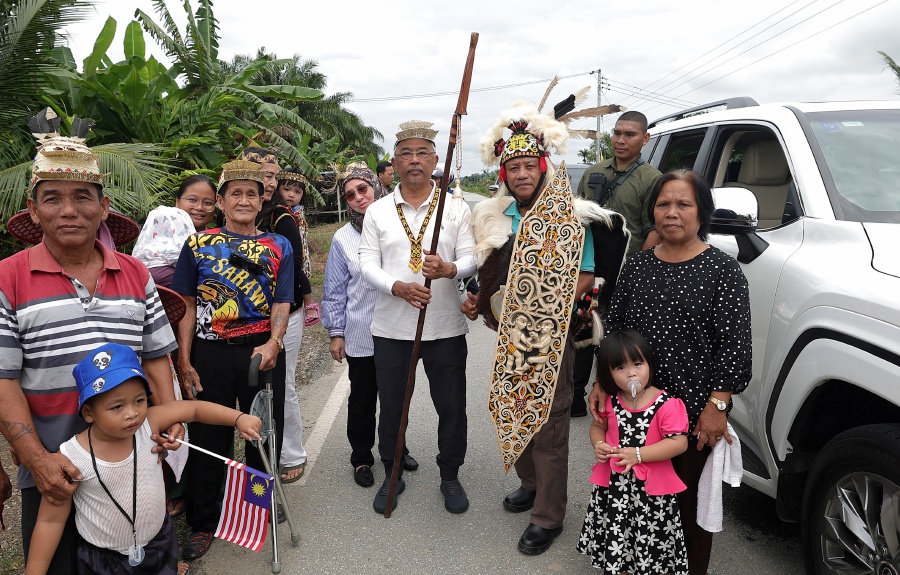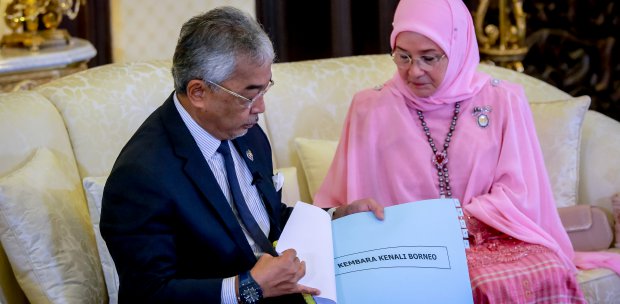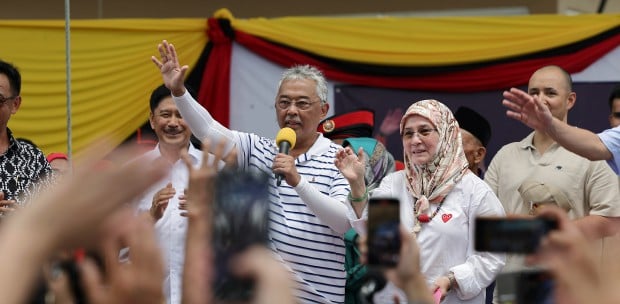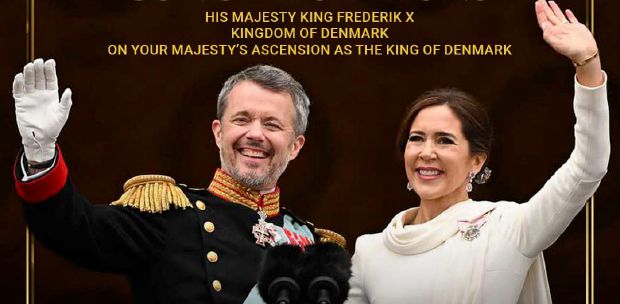If there had been any doubts as to where the loyalty of Malaysians in Sabah and Sarawak lies, the last two weeks erased them when the king, queen and their three sons (including the regent of Pahang) went the full length of the two states along the Pan-Borneo Highway.
Late on Tuesday night, while returning from dinner on the
outskirts of Kuching, I noticed crowds patiently waiting along the highway for a glimpse of the royal convoy, which made it to the state capital only past midnight.
Viral videos chronicling the visit invariably showed Their Majesties effortlessly striking an emotional chord with the people coming out in force to welcome them.
The bonds of nationhood on this side of Malaysia could not have been better kindled than through this truly no-holds-barred encounter between the king and his humblest subjects.
Coming as it did on the very eve of our 60th Malaysia Day, the royal tour is a potent symbol of the ties that bind the nation together.
It is also a reminder, especially at such a fraught moment of unprecedented national political wrangling, that the Borneo states can share a different and perhaps brighter story of what Malaysia is and can be.
Some sentiments have been expressed, not all emanating only from the Borneo side of the nation, that perhaps it is time Sabah and Sarawak took some lead (or at least shared a heavier burden) in defining what this country is about.
Sixty years are a mere blip in the greater scheme of things. Malaysia was not the most natural nation-building construct when it first started and that reality was quickly jolted into our collective memory when Singapore left after two years.
As the years went by, some in Sarawak (probably in Sabah as well) came to believe what one of Malaysia's founding fathers, the late Tun Jugah Barieng, dreaded: Anang Malaysia baka tebu, manis ba pun tang tabar ka ujung (Let Malaysia not be like the sugar cane, sweet at the beginning but tasteless towards the end).
That is necessarily a pessimistic prognosis about Malaysia that does not hold true, even today.
But what is true is that far more Malaysians in Sabah and Sarawak today remain poor even as the nation progresses by leaps and bounds. This has engendered some sense of injustice for which many politicians in Borneo have, fairly or not, pinned blame on federal neglect.
As national attention rightly turns its focus towards making good on this perceived neglect, it behoves those in Sabah and Sarawak to also ponder, as a former American president famously said, what we can do for the nation, not just what the nation can do for us.
Malaysians in Borneo are particularly prone to throwing up their hands in despair at the rather negative turn in the national political discourse of late. They can surely do much better.
They could lend their collective voice to advance and propagate an alternative narrative or vision of the Malaysia they hope to build.
Sabah and Sarawak share a distinction unique to Malaysia: they are both composed of "minorities", where tolerance and "live and let live" with each other have become second nature.
This is an ethos that has so far failed to take sufficiently sturdy roots nationwide.
Their Majesties have made not only a powerful impression through their historic 2,300km sojourn across Borneo, as Deputy Prime Minister Datuk Seri Fadillah Yusof noted, but also an equally powerful connection with Malaysians in these parts.
It is a lead all Malaysians should take to heart: to reach across the sea that physically divides us and multiply the impression and connection the king and queen have so commendably imprinted and ignited.
* The writer views developments in the nation, region and wider world from his vantage point in Kuching






